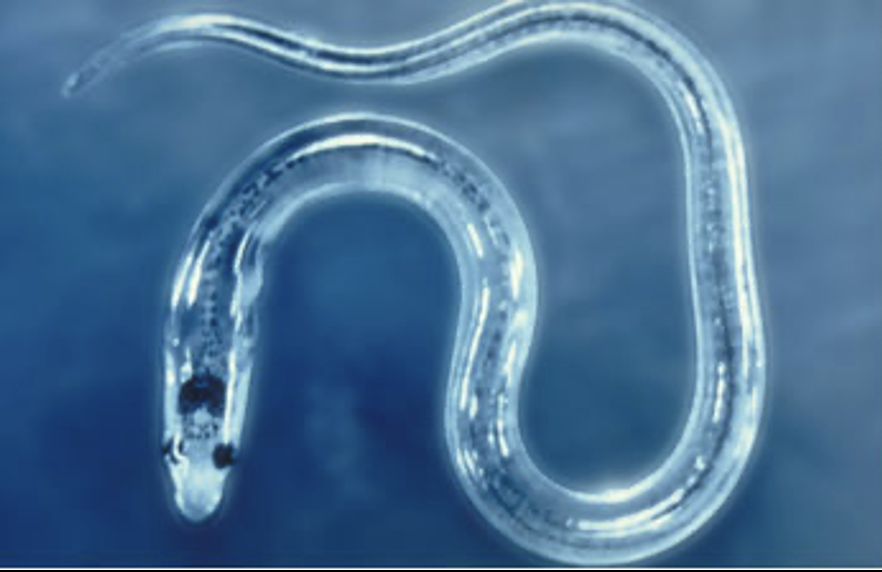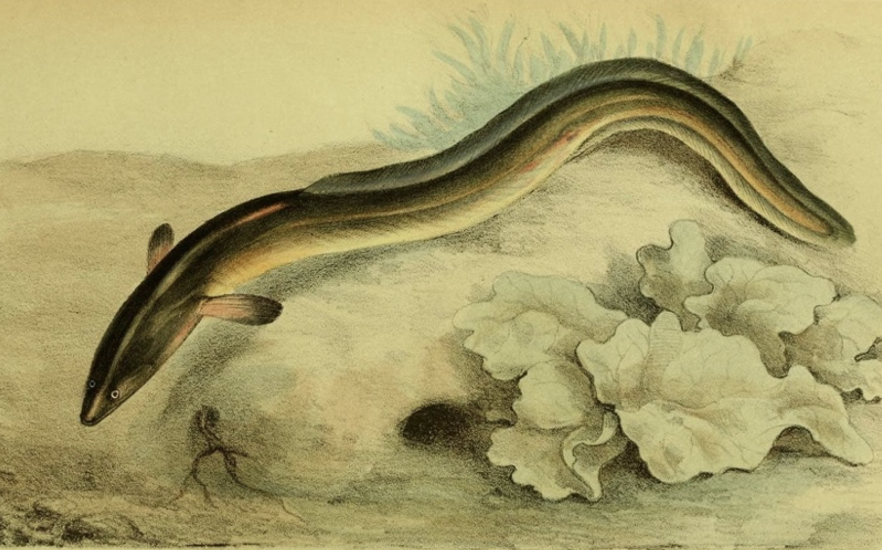302 kg of European glass eels (Anguilla anguilla), i.e. around 900,000 specimens, were seized in February 2023 in Villeneuve-Saint-Georges, south of Paris. The investigation shed light on the mechanisms of the conspiracy: poaching and road transport by French nationals, groupage in the Paris suburbs in tanks managed by Chinese nationals, go-slow smuggling in suitcases by Malaysian smugglers to Dakar in Senegal, where the specimens were regrouped again before being re-exported to Asia by air freight. The smuggling route has been using the African continent since customs targeting between Europe and Asia has been perfected. Trafficking between Senegal and China by this conspiracy has been estimated at 15 tonnes, with a turnover of between 78 and 84 million euros.
In China, glass eels sell for between 2,000 and 7,000 €/kg and are fattened for around a year to become adult eels. 90% of the eels consumed worldwide come from Asian fish farms supplied exclusively with wild glass eels; eels do not reproduce in captivity. Smuggling is two-way, and European eel fillets supply the European and North American markets, particularly for sushi restaurants.
Eight members of the Chinese-led gang were tried for the possession in conspiracy of a specimen of an endangered species of wild fauna or flora or its products, the unauthorised export or re-export in conspiracy of a non-domesticated animal benefiting from special protection, the export in conspiracy without a customs declaration applicable to a prohibited commodity, and threatening in conspiracy the conservation of a protected animal species or its habitat.
The Créteil Criminal Court handed down its verdict on April 10, 2025:
– The warehouse manager in France and supervisor of the Malaysian smugglers’ logistics was sentenced to 5 years in prison and banned from entering France for 10 years after serving his sentence.
– A co-manager of the warehouses in France and Senegal was sentenced to 3 years in prison, 1 year of which was suspended.
– The organiser of the smugglers’ logistics was sentenced to 3 years in prison, 24 months of which were suspended for 2 years.
– The person technically responsible for the tanks in France and for keeping the glass eels alive, including during the journey to Dakar, in water bottles placed in suitcases, was sentenced to 30 months in prison, 24 of which were suspended, and was banned from entering France for 10 years after serving his sentence.
– The 2 poachers from the Loire-Atlantique region were sentenced to 24 months’ imprisonment, 12 of which were suspended, and banned from fishing and all fish farming activities for 3 years.
– The owner of the Villeneuve-Saint-Georges warehouse, who could not have been unaware of the trafficking, was sentenced to 24 months’ imprisonment suspended for 2 years.
– One of the “mules”, a Malaysian, who was absent during the trial, was given a 1-year suspended prison sentence and banned from entering France for 5 years.
They were all jointly and severally sentenced to a customs fine of 211,400 €. The damages suffered by the civil parties, including Robin des Bois (Robin Hood), were recognised and will be assessed by the court in September.
Five other members of the gang were identified by investigators. Two of them are on the run and have arrest warrants out for them.
The NGO EAGLE Senegal assisted with the Dakar part of the investigation. The Senegalese authorities have refused to extradite one of the gang leaders to France.
On departure from Dakar, the glass eels were declared under the false name of African longfin eels, Anguilla mossambica, a species that does not enjoy the same protection as the European species, Anguilla anguilla, which has been listed in Appendix II of the Convention on International Trade in Endangered Species of Wild Fauna and Flora (CITES) since 2009. Appendix II imposes controls on international trade, and the Member States of the European Union have strengthened this global protection by banning exports outside the EU since 2010 (zero quota). To reduce the risk of fraud such as that unmasked by this trial, a proposal to list all eel species in Appendix II of CITES is being studied by the countries of the European Union. It could be presented at the 20th Conference of the Parties to CITES, to be held from 24 November to 5 December 2025 in Samarkand, Uzbekistan. This condemnation demonstrates the urgency and relevance of this proposal. The American eel (Anguilla rostrata) is also plundered, particularly in Canada, the United States and Haiti.
Glass eels, more brittle than crystal
In the information and analysis bulletin on animal poaching and smuggling “On the Trail” n°4 published in April 2014, Robin des Bois was already praising them.
These crystal filaments have had a heart ever since they hatched in the Sargasso Sea, and their outline fins, teeth and eyes foreshadow the metamorphosis into European eels (Anguilla anguilla). When they arrive in Europe, glass eels, also known as “pibales” in French, are 6 to 10 cm long and weigh around 0.3 grams. As adults, eels are 40 cm long and weigh around 2 kg.
In the middle of the 19th century, enthusiasts and admirers of the eel’s reproductive cycle spoke of “glass eel processions”, “glass eel ropes” and “balls as big as barrels” moving up the estuaries and deltas of the North Atlantic and the Mediterranean.
Today, glass eels no longer come in armadas, and their commandos, from the first kilometre of ascent up the rivers and wetlands of the North Atlantic coast and the Mediterranean, are set upon, caught and held hostage in transcontinental trafficking.
 Imprimer cet article
Imprimer cet article











